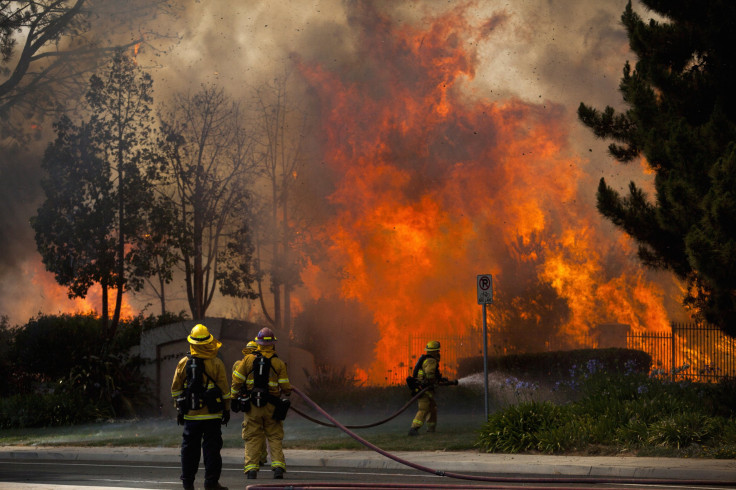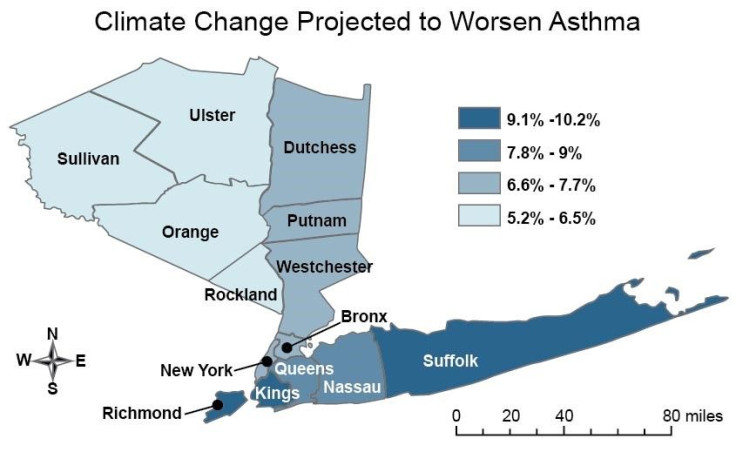White House Report Outlines 6 Ways That Climate Change Will Affect Americans' Health

Think climate change won't affect you directly? According to the White House, Americans' health is already suffering.
In a new health report, the administration outlines six major health issues that Americans could face because of rising global temperatures and its related effects. Some of these concerns—including an increase in heat strokes and the spread of infectious diseases—are already being felt in regions across the country.
1) Asthma attacks will worsen as ozone levels increase.
As global temperatures rise, concentrations of ground-level ozone, a pollutant, will increase. For people with asthma—especially children—that could mean more trips to the emergency room, according to a study of the New York City metro region.

2) Lung and heart illnesses will rise because of more frequent wildfires.
Climate change is projected to increase the frequency and severity of wildfires in the American West and Southwest. That will in turn increase the exposure of Americans’ lungs to harmful smoke, adding to the risk of heart- and lung-related hospitalizations.
3) Infectious diseases will spread as the climate warms.
A grab bag of vector-borne diseases—including Lyme, dengue fever, West Nile virus and Rocky Mountain spotted fever—are expected to spread across different regions of the United States. Warming temperatures make life more comfortable for the pests like ticks and mosquitoes that spread infectious diseases.
4) Allergies will increase as pollen flourishes.
More frost-free days and warmer air temperatures will likely boost pollen concentrations and extend pollen seasons. As a result, pollen-related allergies and asthma episodes will rise, resulting in “diminished productivity and lost school days,” the White House says.
5) Flooding-related hazards will occur more often as rainfall levels rise.
Flash floods and heavy rain events are projected to increase across the country. Severe flooding not only creates immediate safety risks, it increases outbreaks of waterborne diseases.
6) Heat stroke will become more common as summers intensify.
Heat waves will become more frequent and severe because of rising temperatures, amplifying the risk of heat stroke and other heat-related illnesses. This health problem is already being seen, the White House said, noting that many cities, including St. Louis, Philadelphia, Chicago and Cincinnati, have already seen dramatic increases in heat wave-related deaths.

The seven-page report follows the Obama administration’s announcement on Monday about long-awaited rules for cutting emissions from U.S. power plants. In Brussels at a G-7 summit on Thursday, President Obama reiterated America’s commitment to leading the global fight against climate change and to pressuring other big polluters like China and India to take action. Friday's report also comes a month after Obama announced the sweeping National Climate Assessment, which describes the impact of global climate change across the country.
© Copyright IBTimes 2025. All rights reserved.





















